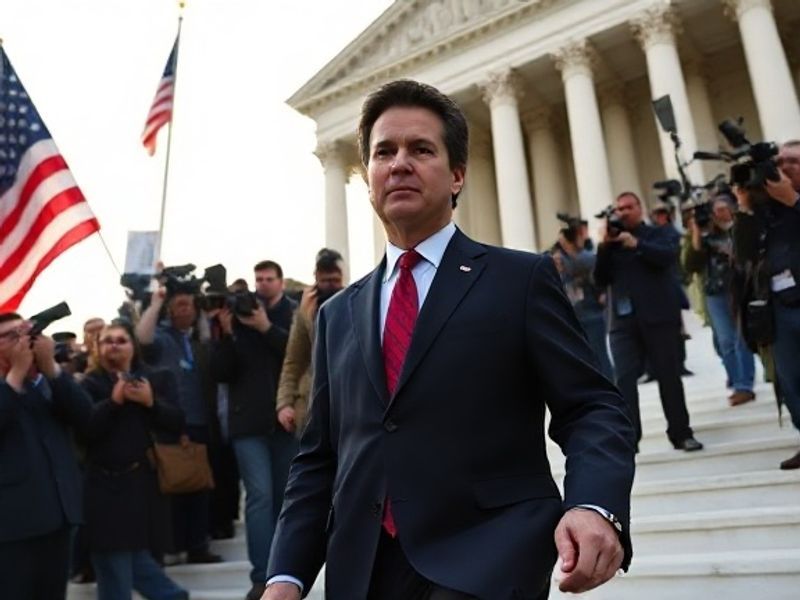Beer Calendars and Bench Seats: How Kavanaugh Became the World’s Favorite American Tragicomedy
Brett Kavanaugh’s ascent to the United States Supreme Court in 2018 was less a judicial appointment and more a live-fire exercise in American self-parody, watched by the rest of the planet with the same fascination reserved for slow-motion bus crashes or a particularly spicy episode of reality television. From cafés in Paris to conference rooms in Singapore, observers took notes, not on constitutional nuance, but on how effectively a 230-year-old experiment in self-governance could turn a lifetime seat on its highest court into a lurid spectacle complete with beer calendars, teenage yearbook slang, and a cameo from a presidential nominee who once bragged on-camera about sexual assault. The global takeaway: America doesn’t do boring, even when boring might save the republic.
Internationally, the Kavanaugh episode arrived as a ready-made morality play. Europeans, still nursing Brexit hangovers, clucked that at least their own crises were mostly economic. Latin American jurists—veterans of courts where judges sometimes retire early via helicopter—marveled at a confirmation process that resembled a cocaine-fueled telenovela plot. In Australia, one cabinet minister was overheard asking whether the FBI’s “supplemental investigation” was actually a euphemism for “long boozy lunch.” The consensus: if the world ever needed proof that the U.S. exports culture more reliably than democracy, here it was, streaming in seven languages.
The strategic implications were less funny. For allies, Kavanaugh’s confirmation signaled that America’s judiciary, long marketed as the neutral referee in a rules-based order, was now just another contested turf in the culture wars. Tokyo’s trade negotiators quietly recalibrated their expectations: why hinge supply-chain security on a legal system that might decide birth-control pills are unconstitutional next term? Meanwhile, Beijing’s propagandists barely had to lift a finger; state television simply ran uncut footage of the hearings under the chyron “Chaos in Washington—Again.” In the zero-sum logic of great-power rivalry, nothing advertises the fragility of liberal institutions quite like a nominee shouting about conspiracies on live television.
Emerging markets filed the episode under “new risk premium.” When the U.S. Supreme Court later overturned Roe v. Wade—an outcome made possible by Kavanaugh’s vote—foreign investors in American healthcare suddenly discovered that “regulatory certainty” is relative. Kenyan tech executives who once benchmarked Delaware corporate law began studying Canada’s instead. Even Russian oligarchs, historically blasé about rule-of-law optics, started parking fewer assets in Miami condos; the spectacle reminded them that U.S. courts, while friendly to capital, might also be hijacked by ideological arsonists who believe precedent is for suckers.
Human-rights watchers abroad parsed the hearings like Kremlinologists. Did Senator Lindsey Graham’s theatrical indignation signal a deeper shift in how democracies handle credible allegations of sexual violence? The answer, delivered via WhatsApp from activists in India to NGOs in South Africa, was bleak: if the world’s loudest champion of women’s rights can’t muster the political will for a thorough inquiry, what hope is there for places where courts already moonlight as dating services for the ruling party? The episode thus became a grim diplomatic lesson: hypocrisy, once exposed, is contagious.
And yet, the planet kept spinning. Global financial markets shrugged—because they always do—closing the week of Kavanaugh’s confirmation slightly up on tech earnings. Popcorn stocks, one suspects, were the real winners. By the time the next news cycle arrived (something about a president extorting Ukraine, if memory serves), the Kavanaugh affair had already been memed, merchandised, and filed under “2018,” the year when satire died of exhaustion.
In the end, the Kavanaugh story is less about one man than about the larger comedic tragedy of a superpower auditioning for decline. The world watches, popcorn in hand, taking notes on what not to do when you’re trying to convince anyone—citizens, allies, creditors—that your institutions are anything more than elaborate stage sets. Curtain falls. Cue the next act. It’s always sweeps week in Washington.







